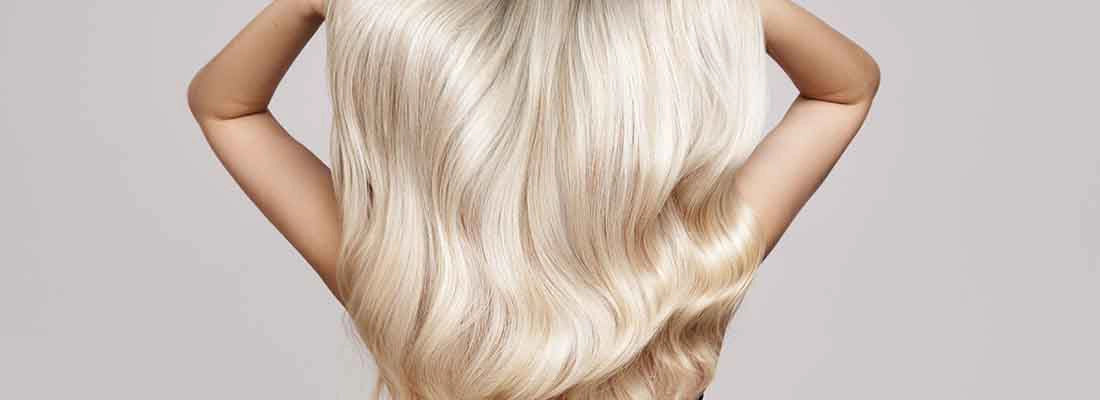
Hair doesn't have cells, but it turns out feeding cells in the rest of the body a wide range of nutrients on a regular basis may still support healthy tresses. The research on vitamins and healthy hair isn't as thorough or conclusive as it is on other topics, but scientists have identified impacts of several nutrients and vitamins on hair health.
How vitamins support healthy hair
The hair lifecycle is composed of three (or four, depending which scientist you talk to) phases. Hair growth occurs in the anagen phase, which requires vitamins, minerals, and proteins. Of the roughly 100,000 hair follicles in the human scalp, about 90% are in this phase at any given moment. Without the right nutrients (and with too much of other nutrients), hair moves out of the growing phase and into the falling-out phase quickly.
When you’re low on nutrients, your body conserves them for the processes that keep you alive. As hair growth is among the first non-essential process to be cut (pun intended), thinning hair is a symptom of most vitamin and mineral deficiencies. This may be why rapid weight loss, due to severe caloric restriction, is so often accompanied by equally rapid hair shedding.
Vitamin A
Too much Vitamin A can cause a lot of problems; hair loss is among them.
B vitamins
While consuming too little biotin, folate, riboflavin (B2), and B12 can lead to hair loss, taking more than the recommended daily allowance will not make thicker, longer, more lustrous locks than genetics allows.
Researchers caution that the amount of biotin found in many hair, skin, and nails supplements can interfere with lab results (leading to incorrect diagnoses for thyroid conditions, autoimmune diseases, tumors, anemia, and more) even though there is no known toxicity.
Vitamin C
Before it kills you, scurvy causes bleeding around the hair follicles and the appearance of “corkscrew hairs.” Luckily, this condition can be cured by eating oranges. Scalp dryness is an early sign of Vitamin C deficiency, way before reaching scurvy levels, which can change hair appearance.
In a recent study, Lypo-Spheric® Vitamin C increased thickness, density, and strength of hair.
Vitamin C is required to produce collagen, the structural protein that contributes to healthy hair. It also supports the absorption of iron, of which deficiency is linked to hair health loss.
Vitamin D
To Vitamin C’s scurvy, Vitamin D deficiency answers with rickets. Hair loss is a symptom of this deadly, though treatable condition.
Iron
The most common nutrient deficiency in the world, iron deficiency is also common in women with hair loss. Some research also links low iron (along with calcium and vitamin D) in premature graying.
Zinc
Hair loss is a well-known symptom of zinc deficiency, though the research into supplementation as a corrective measure is so far inconclusive.
Selenium
Like zinc, research is conflicted with some studies linking massive doses of selenium to hair loss.
How to use vitamins for healthy hair
With the lack of conclusive research on which particular nutrients and vitamins affect hair color, growth, and appearance, supplementing vitamin and nutrient blends labeled specifically for healthy hair may not be the best use of money. As it does for every other system in the body, the research supports frequent consumption of a wide range of nutrients in moderation, primarily through whole foods and supplementing with diet fails to meet the RDA.
Studies
Almohanna HM, Ahmed AA, Tsatalis JP, Tosti A. The Role of Vitamins and Minerals in Hair Loss: A Review. Dermatol Ther (Heidelb). 2019 Mar;9(1):51-70. doi: 10.1007/s13555-018-0278-6. Epub 2018 Dec 13. PMID: 30547302; PMCID: PMC6380979.
Hosking AM, Juhasz M, Atanaskova Mesinkovska N. Complementary and Alternative Treatments for Alopecia: A Comprehensive Review. Skin Appendage Disord. 2019 Feb;5(2):72-89. doi: 10.1159/000492035. Epub 2018 Aug 21. PMID: 30815439; PMCID: PMC6388561.

